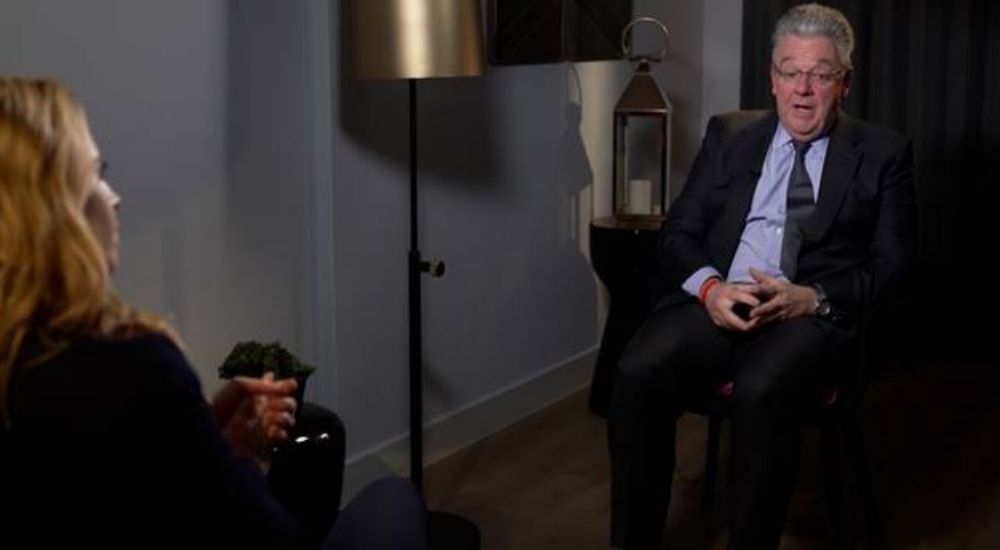Our people have been extremely busy since June when e-com exploded, John Pearson DHL

In the latest edition of Marketplace Europe, CNN’s Anna Stewart looks at how companies across the continent are working to fix Europe’s supply chain crisis. From containers grounded at ports due to labour shortages to pandemic-fuelled shortages of basic goods, the globalised nature of trade creates a knock-on effect on supply chains across the continent.
Stewart sits down with John Pearson, the CEO of DHL Express, who explains that global trade has been resilient throughout the pandemic, “Globalisation and connectedness is at an all-time high, trade is 5% higher than pre-pandemic high levels… And in many senses globalisation was the salvation of things, not the cause.”
Pearson doesn’t expect things to slow down for a while, he tells CNN, “We say internally that we’ve been in a peak since June last year because our people have been extremely busy since June, July when e-commerce just exploded and started growing at 50% when it would normally be growing at 10-15% so we have been in a constant peak season… I think that we’ll be exactly like that to Chinese New Year.”
The supply chain has experienced flash points relating to drivers and fuel during the pandemic but Pearson expects this to change in the near future, “I hope by spring when the pandemic situation maybe is becoming an endemic and is becoming much more localised… If you say what’s the one lever that dictates your world returning to normal, passenger aircraft flying, we take the belly space, we give some of our aircraft back.. therein, you’re getting a normalisation of the supply chain, sea containers get back to where the production sites are, ports catch up and so on and so forth.”
There’s been many industry conversations about inshoring, bringing manufacturing closer to home and making supply chains more localised but Pearson says that “Supply chains work very efficiently and very economically… Regionalisation has not taken over from globalisation… Changing supply chains is very difficult.”
More than $17 Billion was spent last year insuring cargo. Belgian firm Sensolus is hoping to maximise efficiency using its tracking devices to tell suppliers important information about their cargo. CEO Kristoff Van Rattinghe explains why their product is needed, “It seems to be a very big, black hole of a lot of information that is lost. What we solve – we make sure this doesn’t exist. Wherever the things are, you know where they are. And with this data at least you can predict, forecast, or change your plan.”
Sensolus has seen an increase in business during Europe’s supply chain crunch, with companies needing to know exactly where their shipments are. Rattinghe speaks about the trends they have seen, “There is certainly an uptick in business. There are now two trends. First of all it’s the complexity of the general supply chain. But secondly it’s also that the stakeholders and the customers are much more demanding on the visibility. If I order a package, I actually want to know where I will get it delivered tomorrow, and if not I want to know where it has been stuck.”
Across Europe, there is a shortage of around 400,000 truck drivers according to the European Road Haulers Association. Stewart visits the National Driving Centre in London to see how lorry drivers are trained, getting behind the wheel and learning how to manoeuvre a lorry. Marco Digioia, Secretary-General of the European Road Haulers Association talks about why the industry is suffering from a shortage of drivers, “We have fewer and fewer drivers. They are getting older, and young people they do not come. This is one of the biggest challenges the industry is facing. It is a very hard profession.”
There’s hope that the pandemic may be attracting new talent to truck driving. Laurence Bolton, Managing Director of the National Driving Centre tells Stewart, “You have got the displacement from coronavirus, from hospitality, from tourism, where things are still recovering, or people have just had a look at their living habits during Covid and just think actually I’d like to do something different.”





